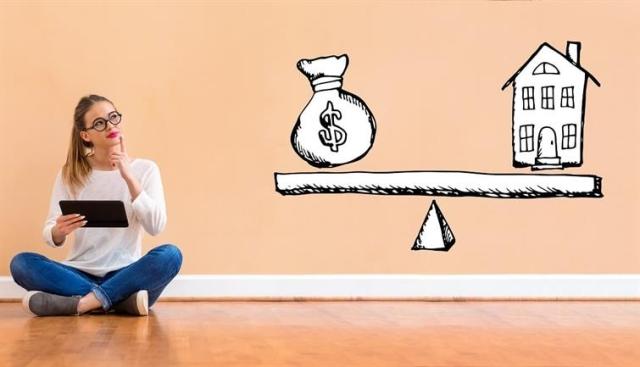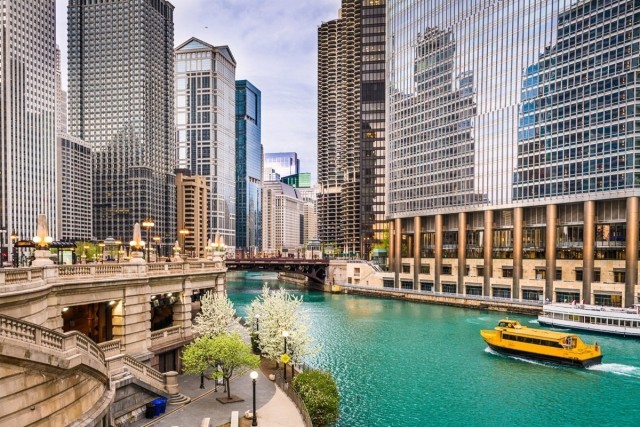Have you ever wondered about your rent? Not so much about the rent itself, but why it’s that specific amount? At the risk of sounding existential, how did your rent come to be? Let’s explore how rent is calculated, how you can find the average rent in any city, and why your rent increases.
How Rent is Determined
A wide variety of factors go into setting a rental rate. There’s location, availability, and demand to consider, as well as expenses. The landlord has certain costs to cover, such as the property’s mortgage payment, taxes, and insurance. Other costs could include utilities, maintenance, and larger repair costs (such as putting on a new roof or repaving the parking lot). If you're more interested in figuring out how much rent you can afford, head over to our rent calculator tool.
Location is a major factor when determining rent. If you are looking at apartments in the trendiest neighborhood in the city, you can expect to pay more because there is higher demand for homes in that specific area. If you look in a less popular neighborhood, you’ll likely see lower rent prices because apartments aren’t snapped up as quickly.
Demand is generated by location and availability. If there are fewer apartments to choose from in an area, the demand is higher, and the price may be higher as a result. Demand gets so high in some places that the local government might step in and set a rent cap. We’ll get to that. First, let’s find the average rent in your city.
How to Find a City's Average Rent
To find out what the average rent is in a city, a good place to start is HUD’s Fair Market Rents report. Click the button to see a list of states. Choose the state you want to review, then the county. The report will give you the average rent for this year and last year, so you can get an idea of the trend in rent prices.
Apartments.com has rent trend information, as well. First, search by city or neighborhood. In the top right corner of your phone, you’ll see “Search Tools.” Click that, and a dropdown menu appears. Choose “Local Guide.” Swipe from the first screen to the second. This screen is called “Rent Trends.” You’ll see a handy table that provides you with the average rent for studio, one, two, and three-bedroom apartments. It will also tell you if the rent has increased or decreased in the last year, and by how much.
When comparing apartments, be sure to compare similar apartments. For example, only compare one-bedroom, one-bath units in the same or very similar neighborhoods. Several variables will impact local rent prices, including square footage and location. Features also come into play. A luxury apartment with high-end finishes shouldn’t be compared to one that is more economical, for example. You’ll pay more for those luxury features.
Why Rent Prices Fluctuate
Demand for apartments isn’t always steady, so neither are rent prices. For example, summer is the peak moving season. School is out, the weather is nice, and most leases end in the summer. This higher demand for apartments will drive up rent prices. Conversely, the winter months have lower demand. Less people are moving due to the weather, school is in session, and there are several holidays in the winter that make it a less desirable time to move. As a result, rent prices may drop in winter.
When demand for apartments is lower, some apartment communities will offer specials to entice new renters. If you have your eye on your dream apartment but it’s slightly out of your price range, try to wait until February or March to see if the rent price drops. In addition to time of year, rent prices can fluctuate by the time of the month (better at the beginning), by the day of the week, and even by the time of day.
Why Your Rent Increases
If you’ve lived in your apartment longer than a year, then you’ve probably renewed your lease at least once. When you were invited to renew your lease, you may have noticed a line in the letter about a rent increase. It’s common for apartment communities and landlords to raise the rent at the start of a new lease. There are several reasons why they do this.
If rents are trending up in your area, your landlord or property manager will likely adjust for this by raising the rent. Typically, they can only raise rent when the current lease term ends. If rent prices went up during the year you were living there, then you can expect a rent increase at the beginning of your new lease term.
Another factor to consider is property tax. Your landlord has no control over this amount, which is set by the local government. If the property taxes increased over the last year, your landlord may have to raise the rent to cover those higher costs.
Property updates and renovations can also lead to higher rent prices. For example, if your rental home needed a new roof or your apartment building recently remodeled everyone’s kitchens, rent increases might be necessary to cover those costs.
If you think your rent increase has made your rent too high, looking at similar apartments in your neighborhood can help you figure out if you should move or renew.
What is a Rent-Controlled Apartment?
A few states have laws in place concerning how much and when rents can increase. In a state with these laws, there’s a limit to the amount the landlord can charge for rent. These laws also limit the frequency and timing of those rent increases. The purpose of rent control laws is to keep apartments affordable in areas where rent prices tend to be unaffordable due to supply and demand.
The number of states that have rent control laws is very small — most states allow landlords to set rent prices according to market rate (the amount the landlord can reasonably charge given the supply and demand in the area). Even in states that do have rent control laws, there are exemptions and exceptions, and the laws can vary by city or even by neighborhood.
Rent control is different from affordable housing. Most states do offer affordable housing programs, but you have to qualify for affordable housing in order to participate in the program. Affordable housing is determined by your income and the area median income where you live. If your income is below the median income, you might qualify for affordable housing. There are several different affordable housing programs, including Section 8, subsidized housing, and public housing. In addition to federal programs, your state or local government may offer additional assistance finding affordable housing.
Rent Increases and When to Negotiate
You now know how your rent came to be. Knowing this, you’ll have a better understanding as to why your rent might increase if you choose to renew your lease. You can compare the new rental rate with other similar apartment communities in your neighborhood and determine if it makes more sense to move or renew.
If you want to renew your lease but the increase will be too much of a hit to your budget, you could try negotiating with your landlord. If they are receptive to negotiating, be willing to compromise. Perhaps consider a longer lease term in exchange for a smaller rent increase. If you are unable to negotiate and need to move, knowing how to find the average rent in your new city or neighborhood, along with when to get the best rental rates, will help you find a great apartment within your budget.






